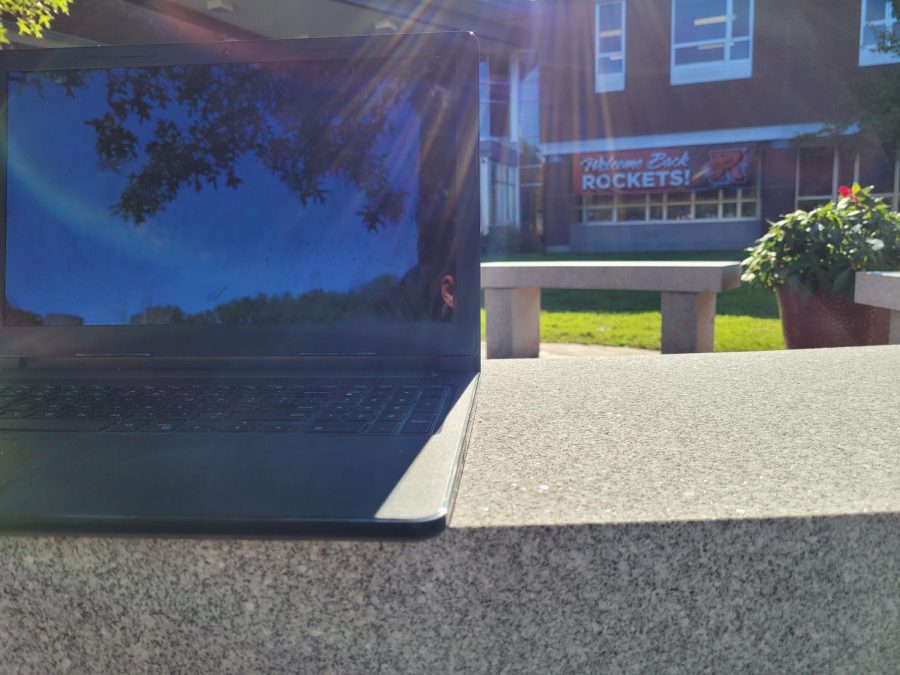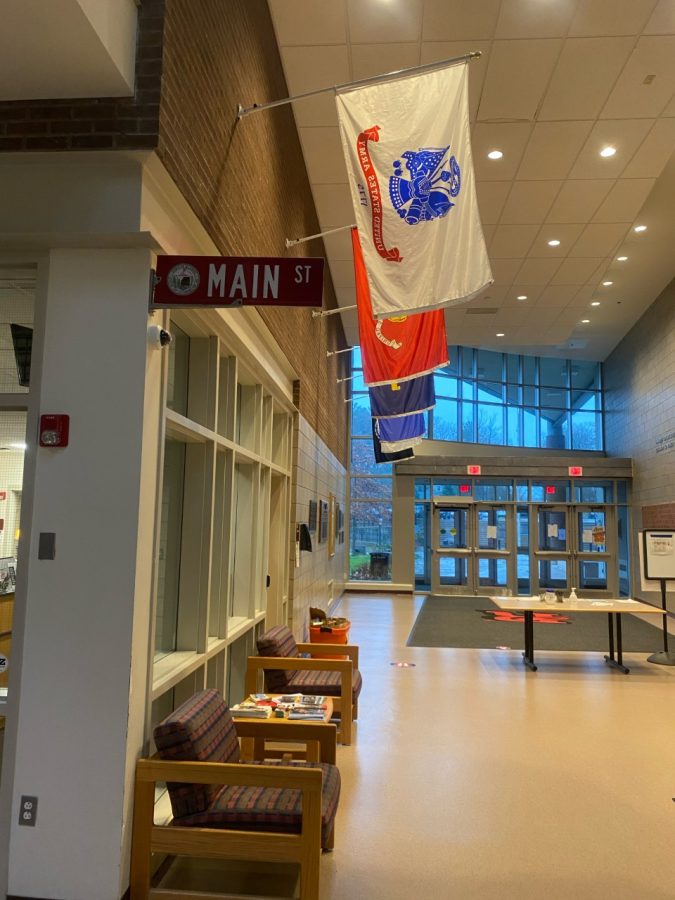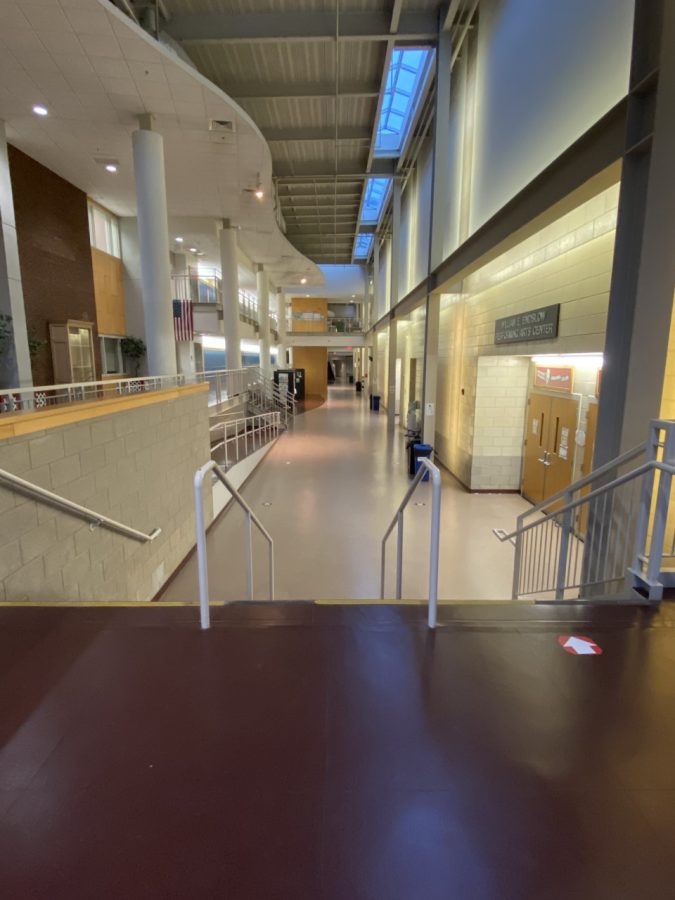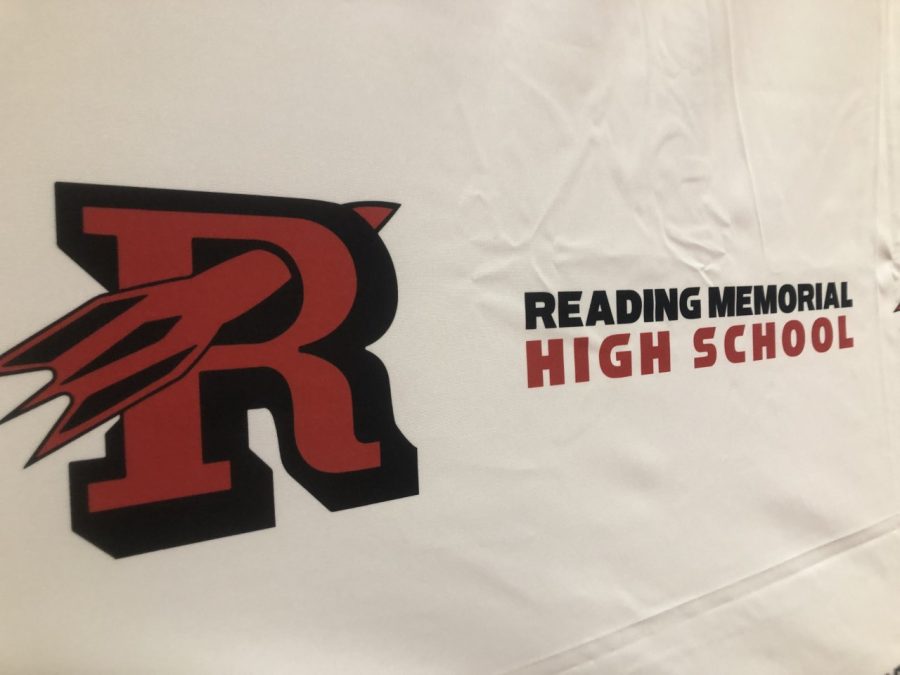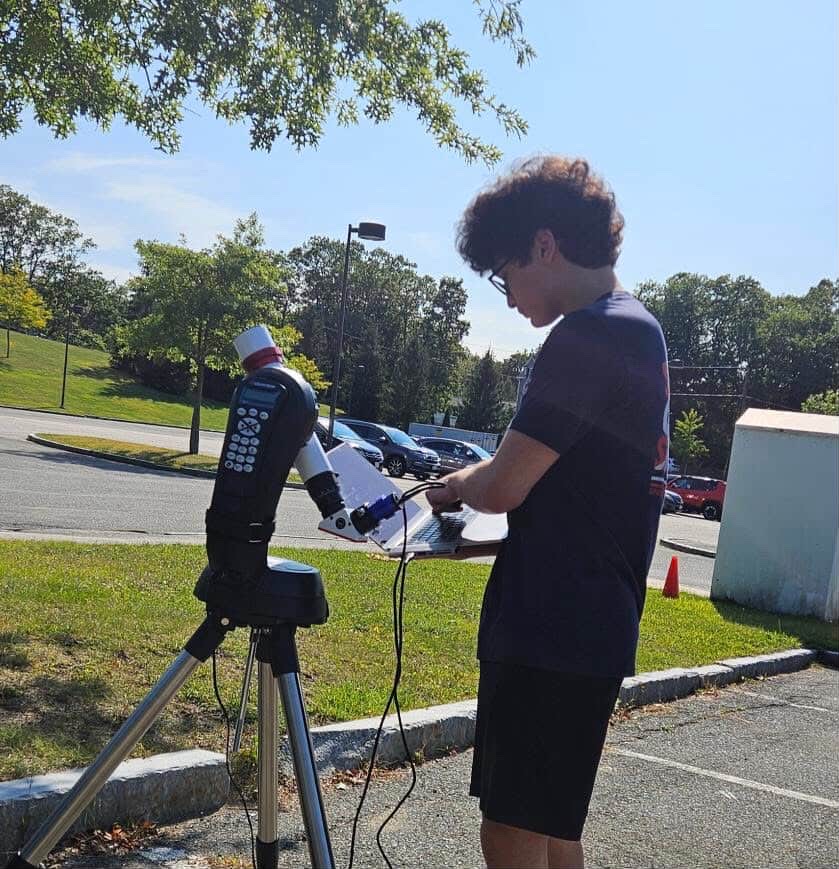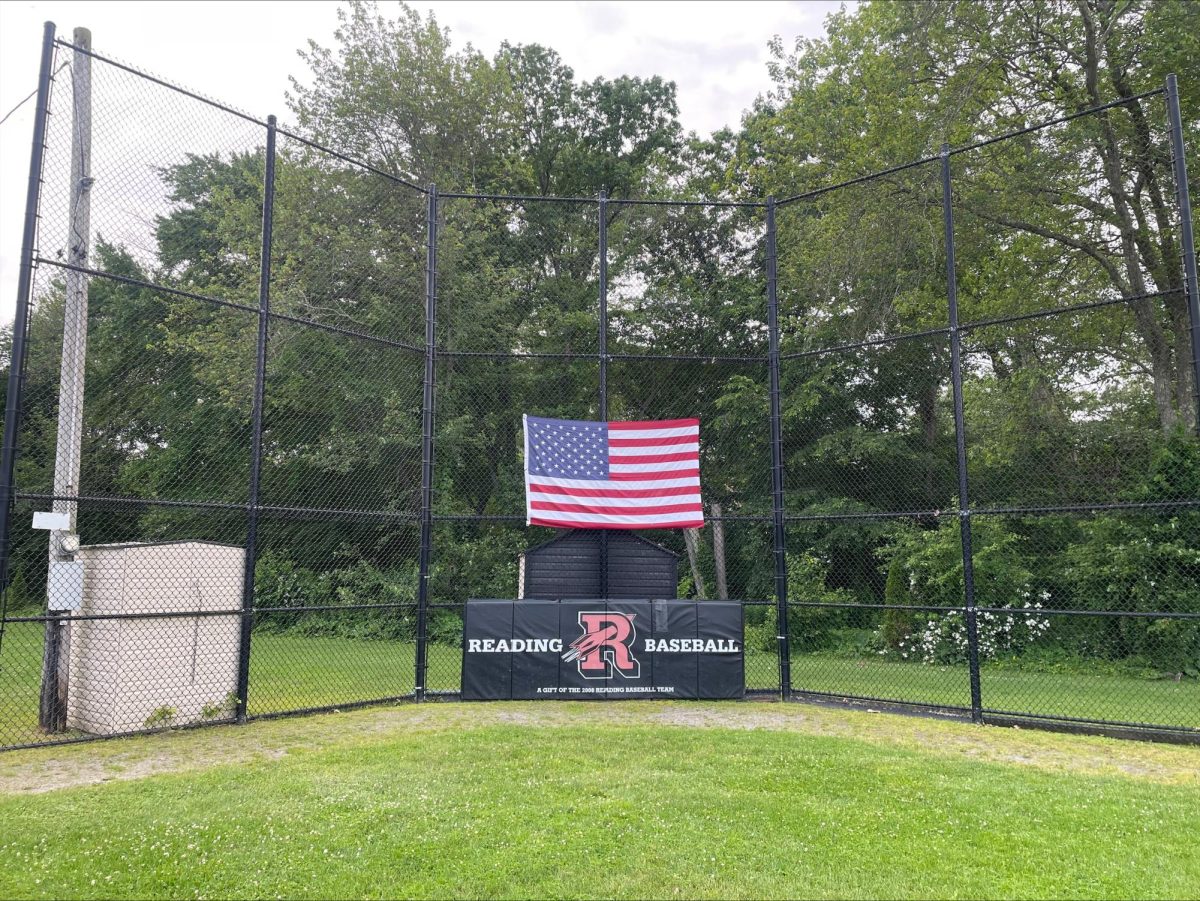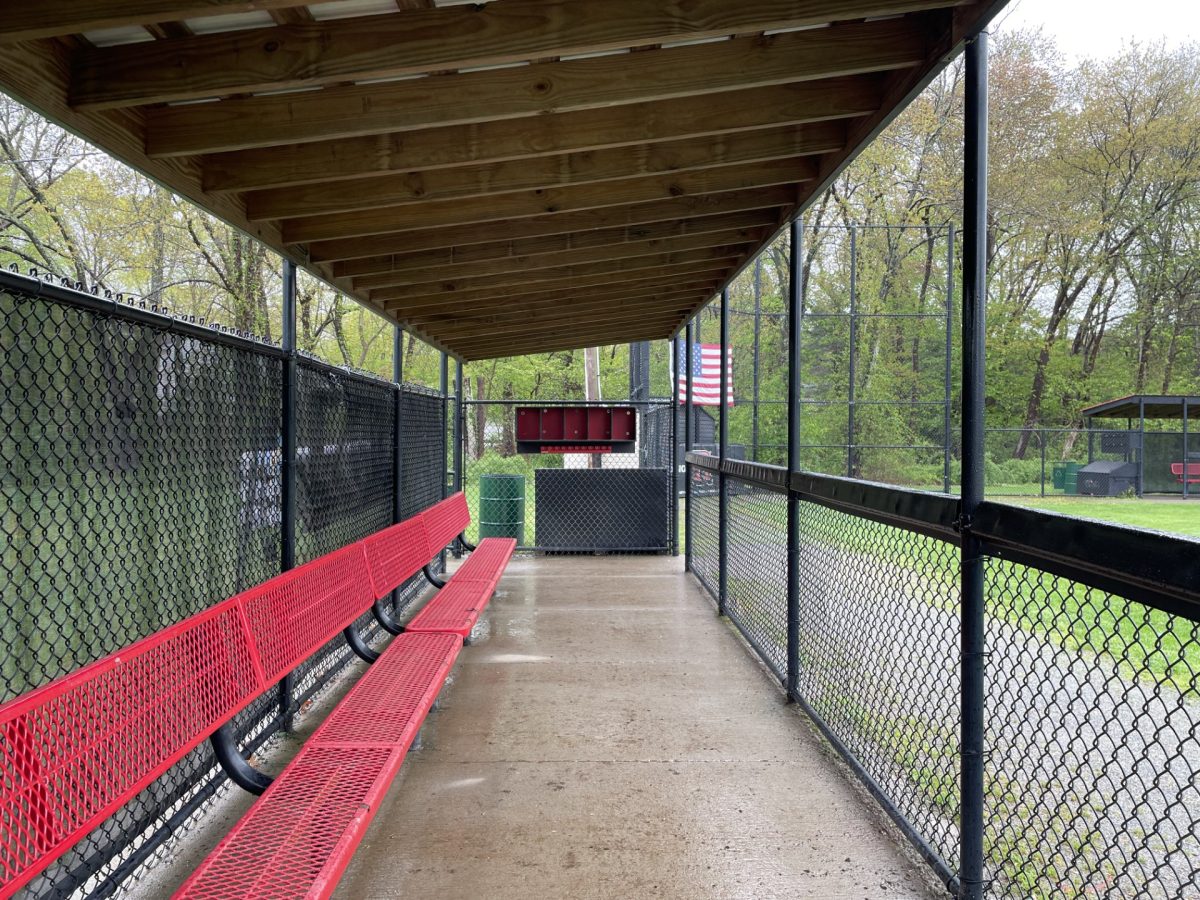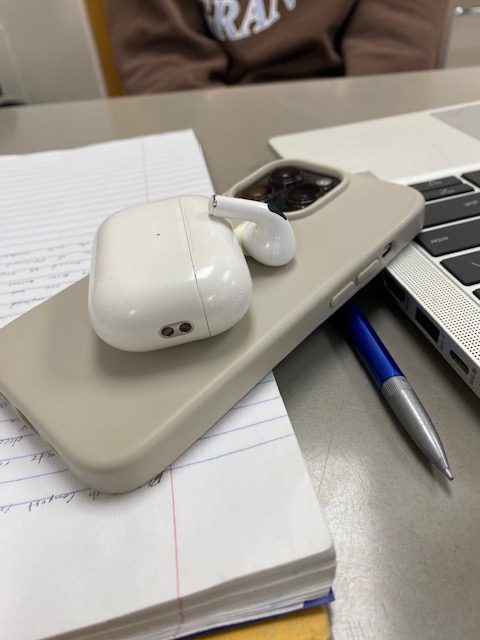Everyone has been there; it’s F block and you’re in the middle of your classwork that’s due at the end of class when the brightness dims down on your computer and the little leaf in the corner pops up. You scramble to get your charger from your backpack– only to realize you left your charger at home and everyone who has a computer charger is already using it to charge their almost dead computers. Plus, there are no open outlets anywhere.
In the fall of 2021, RMHS rolled out its 1-to-1 laptop program in which every student was issued an HP ProBook for their four years of high school. Four years into the program, faculty, staff and students are evaluating the benefits and issues caused by every student having a school-issued computer.
When the district purchased the computers, they had cost “between $600 and $700 per machine, so multiply that by four thousand machines, because it’s not just the high school, it’s all the other schools as well,” said Mr. Andy Strutt from the district’s IT office.
Students come to the IT office frequently, he said. “I would say probably about 20 a day. And I would say probably 25% of that is someone who’s just forgotten their laptop.”
However, he often can’t supply those students with loaner laptops. “We have 28 in our inventory for loaner laptops, but we might end up having 20 something out for repair, waiting on parts and things like that.” So when students come in looking for a loaner, Mr. Strutt says, “We might have two available, one available and then that becomes used up for the day.”
He explained that the current computers are not due to be replaced until Fall 2026. “We usually try and life cycle them about every five years. We’re in our fourth year.”
He also said that there’s a reason the school isn’t getting new computers any sooner: “Budget constraints have a lot to do with that.”
Feedback from the IT department
One of the biggest student complaints about the laptops is their poor battery life. Mr. Strutt said that when the laptops were first purchased, “They would last a full day of normal use.” But, he admitted, “Obviously, as laptops get older, yes, they do lose some of that time frame on battery life.”
Mr. Strutt said he has suggestions to make the laptops last longer. First, he recommended that students “decrease some of the screen brightness and things like that.”
He also said, “If they’re continuously plugged in, that could be detrimental to battery life. If they’re left to run out to nothing and then plugged into charge, that’s detrimental to battery life.”
“I would say make sure that it’s charged at the beginning of the day, so you can charge it overnight. It’s imperative that the computers are shut down properly every day,” he said.
Finally he said students should “actually allow it [laptops] to install updates.”
He agrees that there are not many places to charge computers in a classroom, which is why they “put these charging stations down one in the library, one down by Main Street, one by the cafeteria.” He said, “They’re not just for phones, you can actually unplug the little adapter there, and it’s a USB C charger so that way if you’re at lunch or something and your batteries are low, then you can actually put that in there, give it twenty or thirty minutes of charge, and then grab it back after lunch. Plus, everybody’s issued a charger as well.”
Feedback from teachers and administration
Many teachers believe that the addition of school-issued laptops has been very beneficial for classwork. “My laptops are student laptops. I use Google Classroom. We do assignments online. We do research with our laptops and communicate with students as well via email,” said Business teacher Mr. D’Amore.
Assistant principal Ms. Buckley said that the laptops are “Definitely more beneficial [than not] because students all having the same type of laptop allows us to push out certain applications that help kids access the content in classes, and also kids can access things like Google Docs and it’s all on their school email. It’s helpful in that way.”
However, both teachers and administration admit that there have been some drawbacks of school issued laptops. Mrs. Buckley said, “I have seen disruptions in class due to laptop functions.”
Mr. D’Amore said that he hears computer complaints “Pretty often, in terms of battery life, but I think students need to hold themselves accountable and make sure that they’re prepared for class by charging their laptop.” Ms. Buckley agreed and said, “I think that kids should charge their computers at home at night.”
According to Mr. D’Amore, another issue is that “they provide another distraction for students, and [students] can easily be getting off task on their laptops.”
Ms. Buckley said they are working to address the concerns revolving around the function and battery life of the laptops. She said specifically, “One thing that we’re working on is getting more chargers, having them readily available and having more backup computers if kids need them.” She also said that the lack of outlets in the building is “something that is on our list to solve.”
Feedback from students
Students said they use their laptops frequently throughout the day. Sophia Donnelly (‘25) said she uses her laptop “3 out of the 6 classes a day” while Cal Hurley (‘25) said he uses his “once a class.”
Many students have had technical issues with laptops which vary but there is some concern around repairs, chargers and charger prices, knowing teens are prone to breaking and losing things.
Hurley said when his laptop was broken once, “I went to IT and they fixed it,” but Donnelly had a different experience.
She said, “My brightness button and volume button don’t work,” but had trouble getting assistance from the IT department on the particular day she went. “So, I guess it didn’t get solved,” she said.
Another issue students have been facing was broken or lost chargers and they can be expensive to replace.
Hurley said he lost his charger once, but instead of purchasing it from the school where it cost $50.00, he “bought it on Amazon. It was $8.00,” he said.
Even with all the problems, Hurley says he’s glad he has a school laptop because it allows him to “do my work even out of school if I wouldn’t have a laptop.”
Donnelly agrees it’s been helpful to have. “I can use my laptop to research things and get on Google Classroom and do my classwork on it.”
